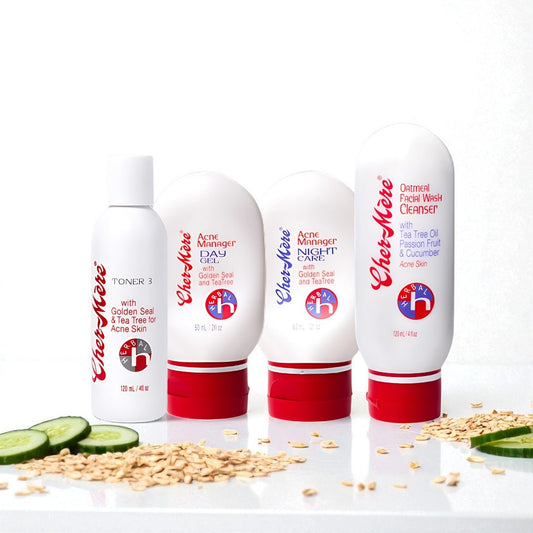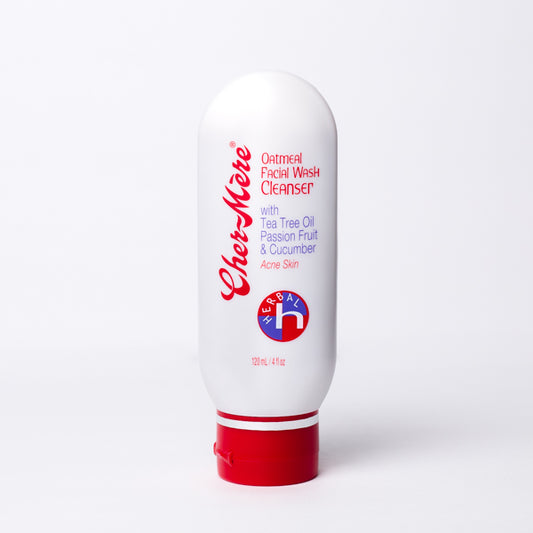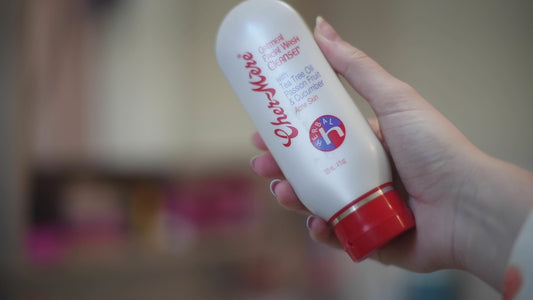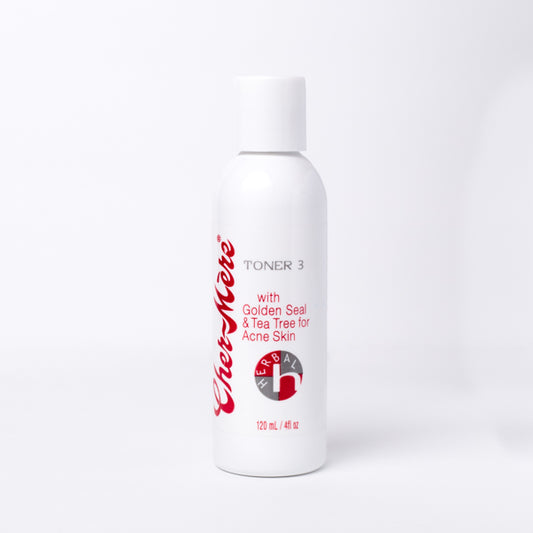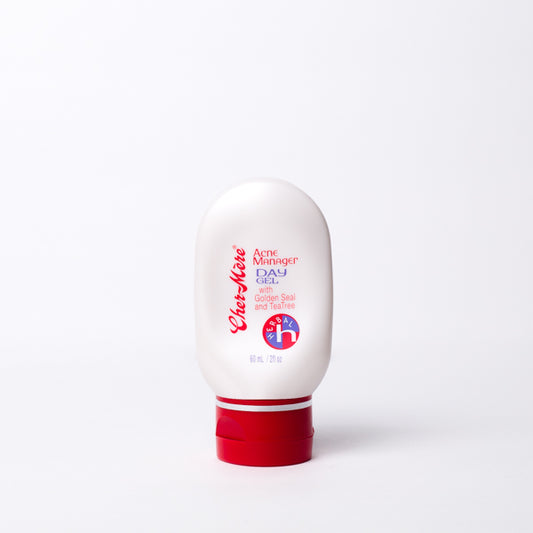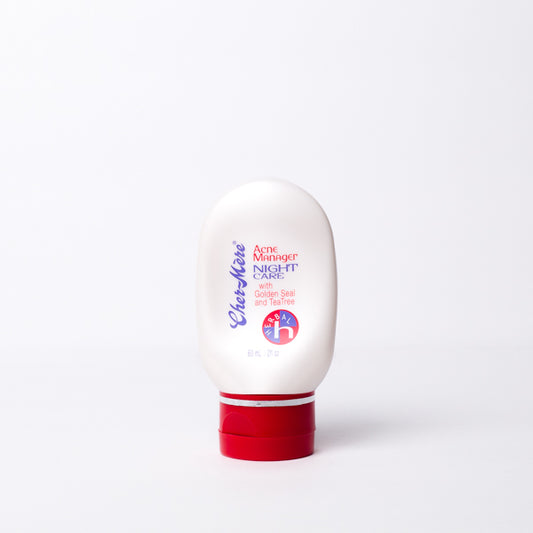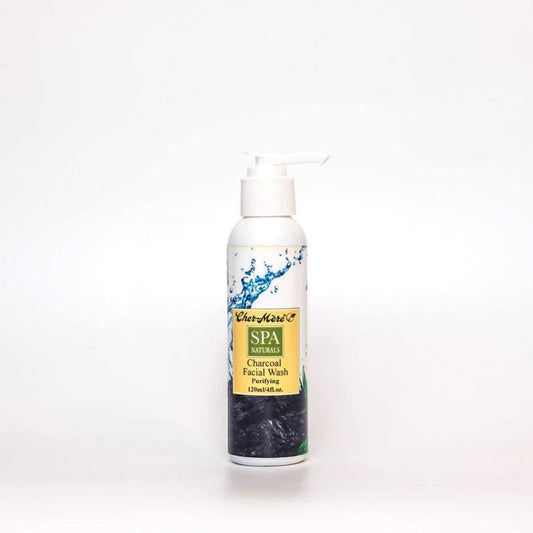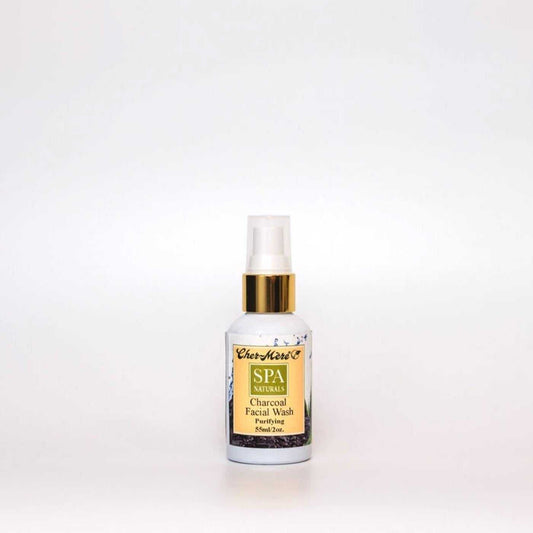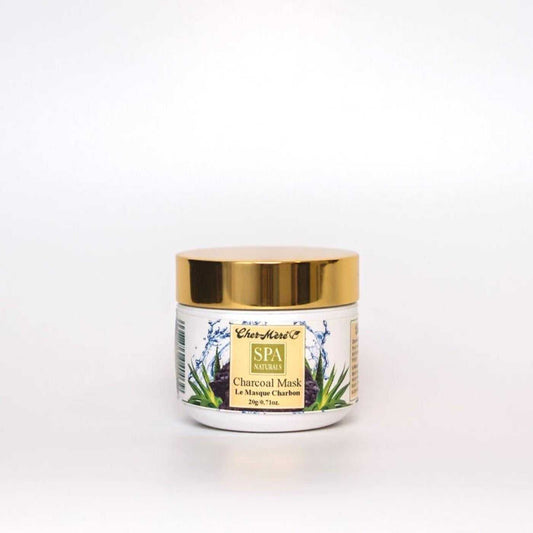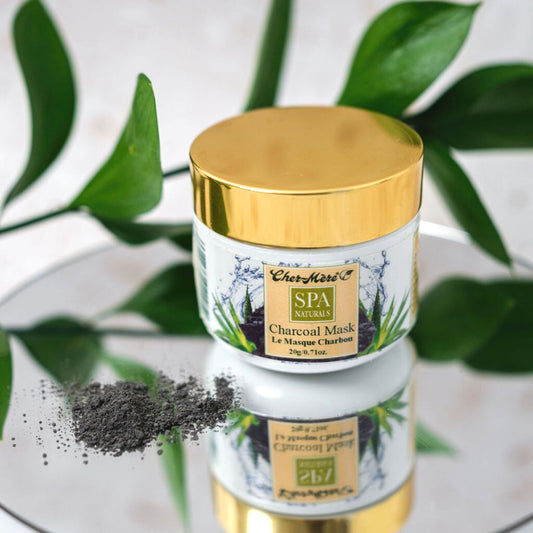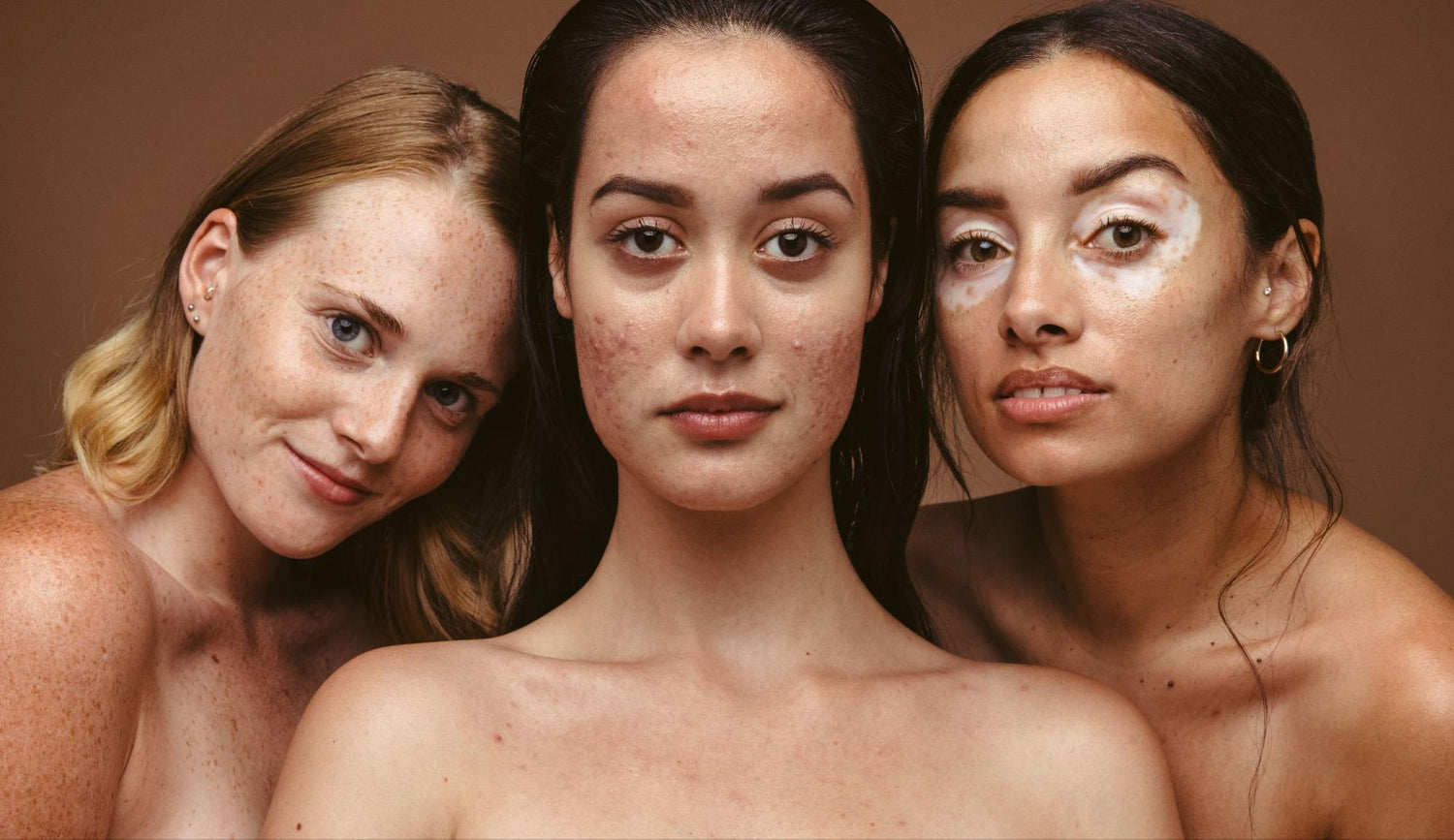
The Best Skincare Routine for Acne-Prone Skin
Do you have any of the following?
- Whiteheads (closed plugged pores)
- Blackheads (open plugged pores)
- Small red, tender bumps (papules)
- Pimples (pustules), which are papules with pus at their tips
- Large, solid, painful lumps under the skin (nodules)
- Painful, pus-filled lumps under the skin (cystic lesions)
If you do, you may have acne-prone skin. Don’t worry, though it may seem overwhelming, with the right products and routine you can manage it and keep blemishes at bay!
In this article, we’ve used our years of skincare and beauty expertise to craft an anti-acne routine (plus tips!) that will soothe and calm acne-prone skin. So, let’s get started.
The Best Skincare Routine for Acne-Prone Skin
What is acne-prone skin?
Acne prone skin describes those who develop blemishes more easily than others. Those with acne-prone skin might not always have present acne, but your skin will generally be more susceptible to breaking out when faced with hormone disruption, inflammatory skincare ingredients or diet changes.
Every person's skin produces an oil called sebum to protect your skin. This oil escapes through your hair follicles, however with acne-prone skin different things in your body may cause you to produce more sebum (oil) than normal which leads to clogging of pores and acne breakouts.
Acne Types (and how to get rid of each one)
While the word ‘acne’ is a general term used to refer to persistent pimples, there isn’t just one type of acne. Depending on the severity of your spots, you’ll most likely encounter one of the following three acne types:
Cystic Acne
Cystic acne is one of the most serious and severe forms of acne. Cystic acne typically appears as large, painful boils that often become infected, and can be found anywhere on the face.
How to treat cystic acne: You can treat cystic acne at the skin’s surface level by incorporating anti-bacterial products into your skincare routine. However, we’d also recommend speaking to a dermatologist if your acne is severe and impacts your day-to-day life. A doctor or dermatologist can offer prescription solutions to treat cystic acne, such as Accutane.
Whiteheads
Whiteheads are a non-inflammatory form of acne, typically caused by bacteria, make-up or skincare products on the surface of the skin. Whiteheads resemble small white dots, and can be found typically anywhere on the face.
How to get rid of whiteheads: Whiteheads can be treated by using an antibacterial cleanser, such as our Oatmeal Cleanser. The tea-tree oil in the formula will work to unclog the pores while sweeping any lingering bacteria off the skin.
Blackheads
Blackheads are another non-inflammatory form of acne, and can be described as small black dots typically found in the T-zone.
What does acne-prone skin look-like?
💡MYTH: Oily skin = acne-prone skin. This is a common misconception; the truth is, you can have acne with any skin type.
Most people will already know if they’re acne-prone or not, as they’ll suffer breakouts more regularly than others.
However, what’s the difference between acne-prone skin and oily skin? And how can you tell whether you’re dealing with environmental breakouts - or if your skin is just more prone to pimples in general?
Put simply, it’s all a question of good skin hygiene. Now don’t worry - we’re not saying that acne is caused by neglecting your skin. On the contrary, you might be using too many skincare products that can actually aggravate acne.
That being said, there are certain environmental factors that contribute to temporary acne. For example, forgetting to take your make-up off, forgetting to wash your face after the gym, or forgetting to frequently change your pillowcases - these can all cause pimples. But this doesn’t mean you have acne-prone skin; once you revert back to good habits, these spots will typically disappear.
In order to tell whether you have acne-prone skin (or if your skin is simply reacting to outside elements) you can try to eliminate acne-causing foods, products and habits from your lifestyle and skincare routine. If your acne persists even after doing so, it means that you have acne-prone skin.
What causes acne-prone skin?
The problem with acne is that it can be difficult to identify one principle source of the problem. Any one of the following factors can cause (or contribute to) acne:
- Diet. In some studies, diets high in dairy and sugar were shown to increase sebum production and cause acne.
- Hormonal fluctuations. Whether caused by medication, menstruation or other factors, hormonal fluctuations can cause hormonal acne. Hormonal acne will typically show up on the chin area and jawline.
- Birth control. While some birth control has been known to actually clear up acne, some users also find that the reproductive pill disrupts their hormones and breaks them out.
- Comedogenic ingredients. Using skincare products with comedogenic ingredients (aka ingredients that can clog pores) can lead to the development of acne. This type of acne will typically show up all over the face in small, whiteheads or closed comedones.
- Genes. Some people are simply born with oilier and more acne-prone skin than others. It’s completely normal, and can be managed easily with the right skincare products.
If you’re still not sure, take our free skincare type test here and find out what your skin type is.
Our Ultimate Skincare Routine for Acne-Prone Skin
Now that you understand a little bit more about why your skin may be acne-prone, what’s the best way to deal with it? First of all, you want to manage skin with natural skincare products.

Choosing a cleanser for acne prone skin
The most important step in any anti-acne skincare routine is finding a good cleanser. And when it comes to keeping pimples at bay, it’s essential to find a cleanser with antibacterial properties.
Our Oatmeal Face Wash with Tea Tree Oil, Passion Fruit and Cucumber is ideal for battling breakout. Using antibacterial tea tree oil, you’ll rinse off any lingering oil or bacteria sitting on the surface of your skin, while nourishing your complexion with soothing, antioxidant passionfruit and soothing cucumber.
All skin types can develop acne. That’s why our Oatmeal Face Wash contains nourishing properties for all skin types - it’s not going to strip your skin.
Why cleansers are so important for acne-prone skin
Most acne is caused by clogged pores, and clogged pores occur when bacteria, make-up, oil or dirt gets trapped under the skin. With a good cleanser, you can sweep any bacteria and excess oil off your face, leaving little-to-no room for pores to get clogged.
Choosing a toner for acne prone skin
What ingredients to use.
For those with acne-prone skin, a toner is an indispensable role in their skincare routine. Toner will often pick up any bits of bacteria, make-up or dirt that your typical cleanser missed, while also balancing the skin’s pH.
Our Toner 3, enriched with our iconic combination of tea tree oil and Goldenseal and designed for acne-prone skin, works to soothe any imbalances and breakout-related redness. Swipe this toner over your skin after cleansing and let it work its magic. Pay particular attention to the jawline, as this is an area where make-up is often missed while cleansing.
Choosing a moisturizer for acne prone skin
If you have acne-prone skin, it can be difficult to choose the right moisturizer. This is because many hydrating creams contain heavy ingredients that are likely to either clog your pores or make your skin feel greasy.
Best day moisturizer for acne-prone skin
For day creams, gels are the best option for acne prone skin. Gels are much less likely to clog the pores than heavy creams, and our Acne Day Manager is enriched with antibacterial goldenseal and tea tree oil to keep oil from clogging the pores.
Best night moisturizer for acne-prone skin
When it comes to night creams, you can go a little heavier and opt for a traditional cream. Our Acne Night Manager is a lightweight formula enriched with natural oils - we’ve used Lavender and Eucalyptus oil to balance, hydrate and soothe the skin without overloading it. Plus, your skin produces sebum at night, so this night cream is also enriched with antibacterial herbs Goldenseal and tea tree oil. No more waking up to new pimples!
Best face masks for acne-prone skin
In our view, you can still use masks when you’re dealing with a breakout. You might simply want to avoid harsh chemical exfoliant masks (such as AHAS and BHAs), instead opting for natural purifiers (such as clay or charcoal.)
Why charcoal masking is a good idea for acne-prone skin:
- Help minimize redness from existing breakouts
- Purify the skin and purge the pores of existing bacteria
- Brighten skin
- Close and reduce the appearance of pores
- Detoxify the skin
- Help control oil production
Cher-Mère Charcoal Mask uses natural charcoal and aloe vera to provide a soothing, purifying and detoxifying treatment ideal for those with acne-prone skin. As it’s quite intense, we’d recommend only using this mask every two weeks
Managing Acne-Prone Skin: Tips and Tricks
To keep acne-prone skin healthy and nourished, a combination of a good skincare routine and good habits will make all the difference.
Using anti-inflammatory products that are non-comedogenic and not drying are a vital part of the routine - that’s why we use them in all of our skin range products for acne-prone skin. Prioritize these when creating a routine that works for you.
Last of all, make sure to take extra care of your skin during the winter months, and don’t forget that hydration also begins within - so make sure to drink lots of water alongside performing your skincare routine every day.
So, you’ve got the right skincare products. But how else can you take care of your acne-prone skin, and how can you avoid sensitive flare-ups? Here are our top tips at keeping your skin healthy and nourished, from the team at Cher-Mère:
- Try to eat as many antioxidant-rich foods as possible. Antioxidant-rich foods are known to help reduce the body’s production of sebum.
- Don’t over-cleanse or over-exfoliate the skin. Over-exfoliating can lead the skin to produce even more oil to compensate for the loss of natural oils, leading to even more acne.
- Always wash your face after exercising. You can easily clog your pores if you forget to do so.
- Don’t be surprised by skin purging. Purging occurs when you begin using new skincare products and the bacteria under your skin is pushed out. You might experience some breakouts when you use new skincare products, but these should only last a few weeks.
How to get rid of blackheads: Blackheads are easy to get rid of with purifying ingredients such as clay and charcoal. Our Charcoal Mask and Charcoal Face wash uses natural clay to unclog the pores and purify the skin.
What treatments exist for acne prone skin?
For those with persistent acne, many salon treatments exist to help alleviate the appearance of pimples and balance the skin.
At Cher Mère, we offer an Acne Facial designed to soothe, treat and pamper acne-prone skin. We use a deep cleanse, an exfoliation treatment, deep steaming and pore cleansing to reduce sebum, remove bacteria and restore a healthy skin pH to the skin. You can find book your acne facial here.
Aside from salon treatments, there are also many prescription alternatives to help treat the root causes of acne. We would suggest that you connect with a trusted dermatologist.
Shop the Acne-Prone Skincare Routine Products
-
Clear & Calm Skincare Bundle
Regular price $123.00Regular priceUnit price per -
Oatmeal Facial Wash Cleanser with Tea Tree Oil, Passion Fruit and Cucumber
Regular price $40.00Regular priceUnit price per -
Toner 3 with Golden Seal and Tea Tree Oil
Regular price $30.00Regular priceUnit price per -
Acne Manager Day Gel with Golden Seal and Tea Tree
Regular price $40.00Regular priceUnit price per -
Acne Manager Night Care with Golden Seal, Tea Tree
Regular price $40.00Regular priceUnit price per -
Charcoal Face Wash
Regular price From $25.00Regular priceUnit price per -
Charcoal Mask
Regular price $30.00Regular priceUnit price per

